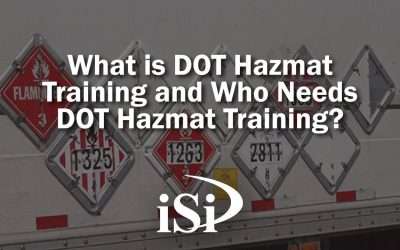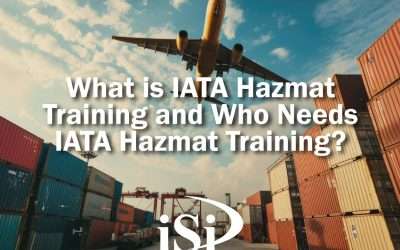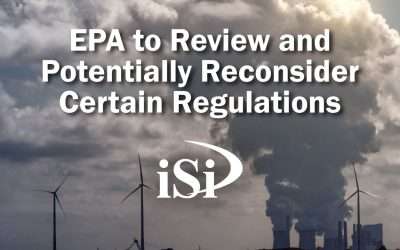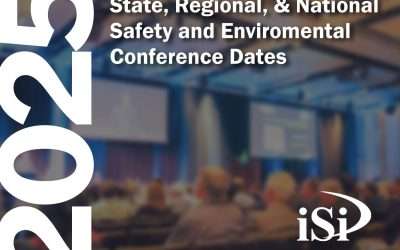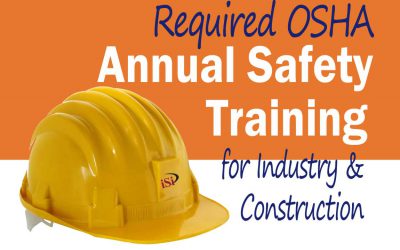The iSi Blog
Featuring the Latest From OSHA and EPA as Well as Other Regulatory and iSi Updates
Join Our Email List!
Stay informed of upcoming regulations — get our blog articles and other updates sent directly to your email. Subscribe today!
Holiday Safety
This season of celebrating can be a wonderful time of the year, but it can also be a time for accidents. • Keep Real Trees Watered: The combination of shorts in electrical lights and a tinder-dry tree can be deadly. Keep your tree well-watered. Water levels should...
Seasonal Distractions
The holidays are a busy time for most of us and with that comes a lot of distraction, stress, fatigue and loss of focus. These are all things that can negatively affect our safety. Holiday Distractions: It’s important to be aware that these conditions may be occurring...
2026 EPA and OSHA Compliance Deadlines
It’s a new reporting year and time to plan for reporting and compliance deadlines from 2025's activities and for the new year. Mark your calendars with these environmental and safety reporting deadlines and other to-do tasks for 2026: EPA/Environmental March 1...
Thanksgiving Safety Tips to Share With Your Employees, Family and Friends
As a safety consultant, we make sure that our teams know about safety in all aspects of their life, not just the OSHA kind at work. Safety at home is just as important as safety at work. Below are some tips for Thanksgiving Safety, including a link to download a...
What is an SPCC Plan and Why Do You Need One?
Oil spills—large or small—can have serious environmental and financial consequences for a facility. That’s why the EPA requires certain sites to have a Spill Prevention, Control, and Countermeasure (SPCC) Plan in place. An SPCC plan is a written document required by...
Halloween Safety Tips
Take precautions so that you can have a fun and SAFE Halloween! According to the National Safety Council, children are more than twice as likely to be hit by a car and killed on Halloween than on any other day of the year. Trick or Treating When Trick or Treating,...
What is DOT Hazmat Training and Who Needs DOT Hazmat Training?
Department of Transportation (DOT) Hazmat Training provides crucial knowledge on the Hazardous Material Regulations (HMR) and is required for all employees who handle hazardous materials for transportation. What does DOT Hazmat Training entail? DOT training is...
What is IATA Hazmat Training and Who Needs IATA Hazmat Training?
In aviation, the rules of the sky aren’t written in the clouds—they’re set by IATA and in the air, safety, compliance, and precision are non-negotiable. IATA is the acronym for the International Air Transport Association, and their Dangerous Goods Regulations specify...
What is ISNetworld and What Are the Top 10 Things You Will Need to Have to Comply
If you are a contractor, subcontractor or vendor, it's likely the number of times you've been sent prequalification paperwork or links has increased significantly in the past few years. Standardized prequalification websites such as ISNetworld, Avetta, Veriforce,...
OSHA Increases Eligibility for Reduced Fines
To help encourage smaller companies to comply with regulations and invest resources into compliance and abatement, OSHA and the U.S. Department of Labor made some updates to their penalty reduction eligibilities. New OSHA Penalty Reduction Guidelines 25 or Fewer...
Top Electrical Safety Violations
In honor of May’s electrical safety month designation, here’s a list of OSHA’s most common electrical safety violations found in General Industry and Construction: Listed or Labeled Equipment 1910.303(b)(2) & 1926.403(b)(2) This is OSHA’s most cited electrical...
Are You Shipping Hazardous Materials? Common and Surprising Hazardous Materials Many Companies Ship but May Not Realize
We do a lot of hazardous materials transportation training where we teach persons from industry how to properly package, label and ship hazardous materials by ground, air and by sea. Although each method is overseen in the U.S. by the Department of Transportation...
OSHA Adds Requirement for PPE to Properly Fit Construction Industry Workers – Aligning With Same Requirement for General Industry
OSHA has updated its Construction Industry PPE standard at 29 CFR 1926.95 to require that PPE properly fit workers. This aligns with similar requirements in the General Industry Standard at 29 CFR 1910.132(d)(1)(iii) that requires employers to select PPE that...
EPA to Review and Potentially Reconsider Recently Created Regulations
Other Agencies May Follow Suit EPA’s new Administrator Lee Zeldin says the agency is going to focus on a new initiative to help return EPA to its core mission of conservation rather than “environmentalist radicalism” and regulation. Called “Powering the Great...
Who Regulates Hazmat Shipments?
In the environmental and safety world, it’s usually pretty easy to determine who’s the regulatory authority. For safety, in most cases it’s OSHA, and if you’re in a “state plan” state or if you’re a public entity, your state will have an additional safety regulatory...
Welding Fumes
When you see the visible smoke coming from the welding process, whether it’s from welding, oxy fuel cutting, plasma cutting or brazing, that smoke is a welding fume. Welding fumes contain very fine particles of metal and gas by-products that can negatively affect your...
EPCRA Tier II: Does the March 1 Deadline Apply to Your Facility?
The Emergency Planning and Community Right to Know Act (EPCRA) requires facilities to report emergency and hazardous chemical information each year to their state and local emergency response officials and local fire departments. This is a federal requirement, but...
State, Regional and National Safety and Environmental Conferences for 2025
We exhibit and speak at many different safety and environmental conferences throughout the region. What's the schedule look like for 2025? Here is a list of some upcoming state, regional and national safety and environmental conferences that you may want to add to...
Which Annual Safety Training Requirements Should You Add to Your Calendar?
Annual safety training is a best management practice and is most often required when conditions in the workplace change. However, the OSHA standards don’t specifically require annual safety training for all of its topic areas, just a handful of them. Employee Access...
Back to Work Safety
After being off for the holidays or any time of vacation, sometimes it’s hard to get back into the groove of working. This is a time where it’s easy to not be as mindful about safety as we usually are. Workplace accidents tend to be higher after people come back from...
Be Safe When Ringing in the New Year
Regardless of whether you’re going out, or staying in for New Years celebrations, safety should always be top of mind. New Year’s Eve is actually one of the more dangerous holidays for car accidents. Here are a few tips to share about being safe when ringing in the...






